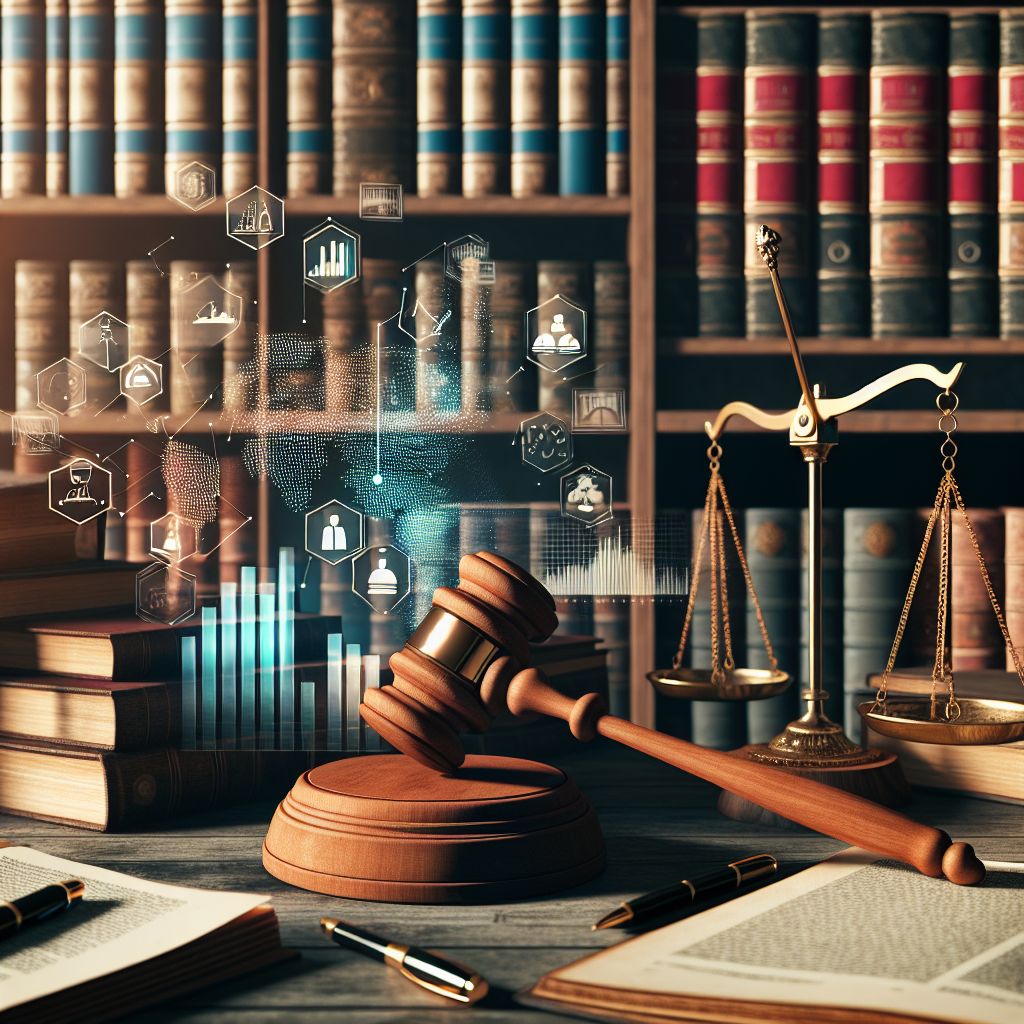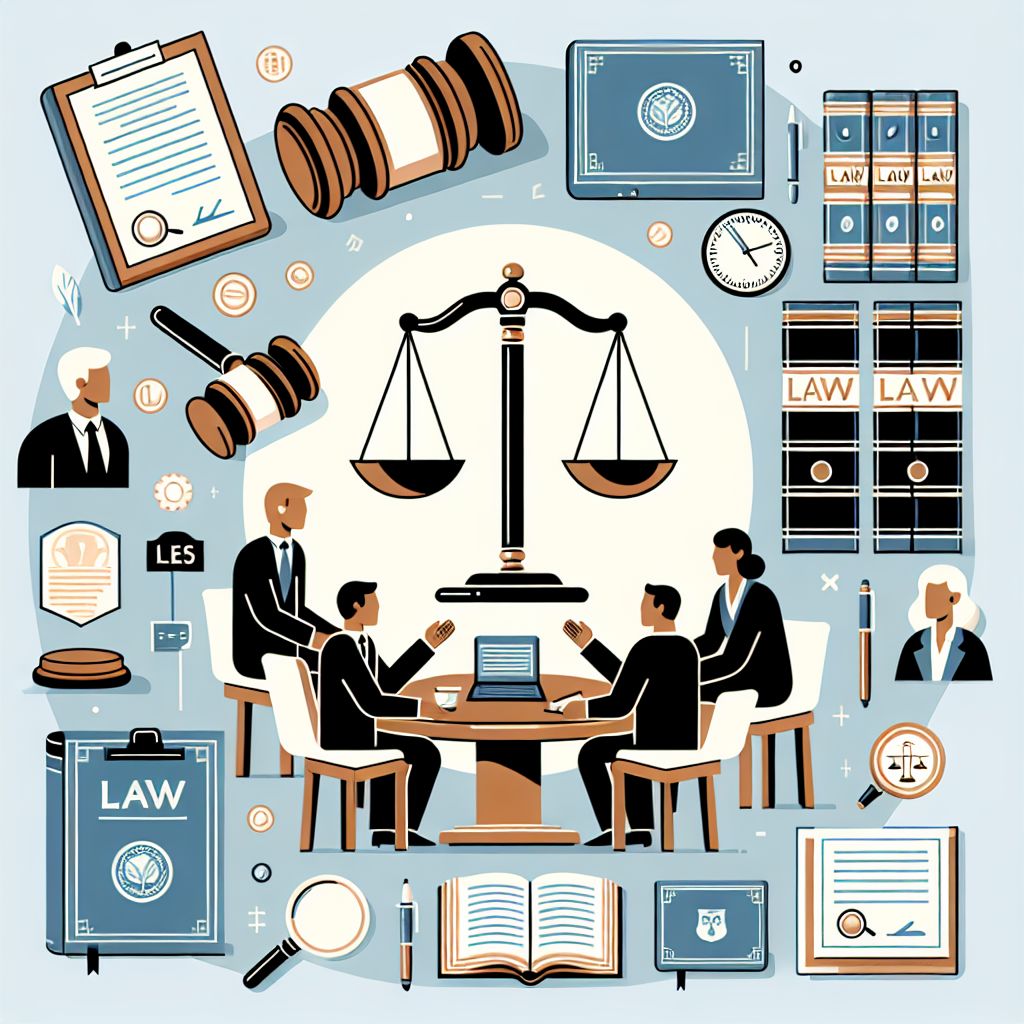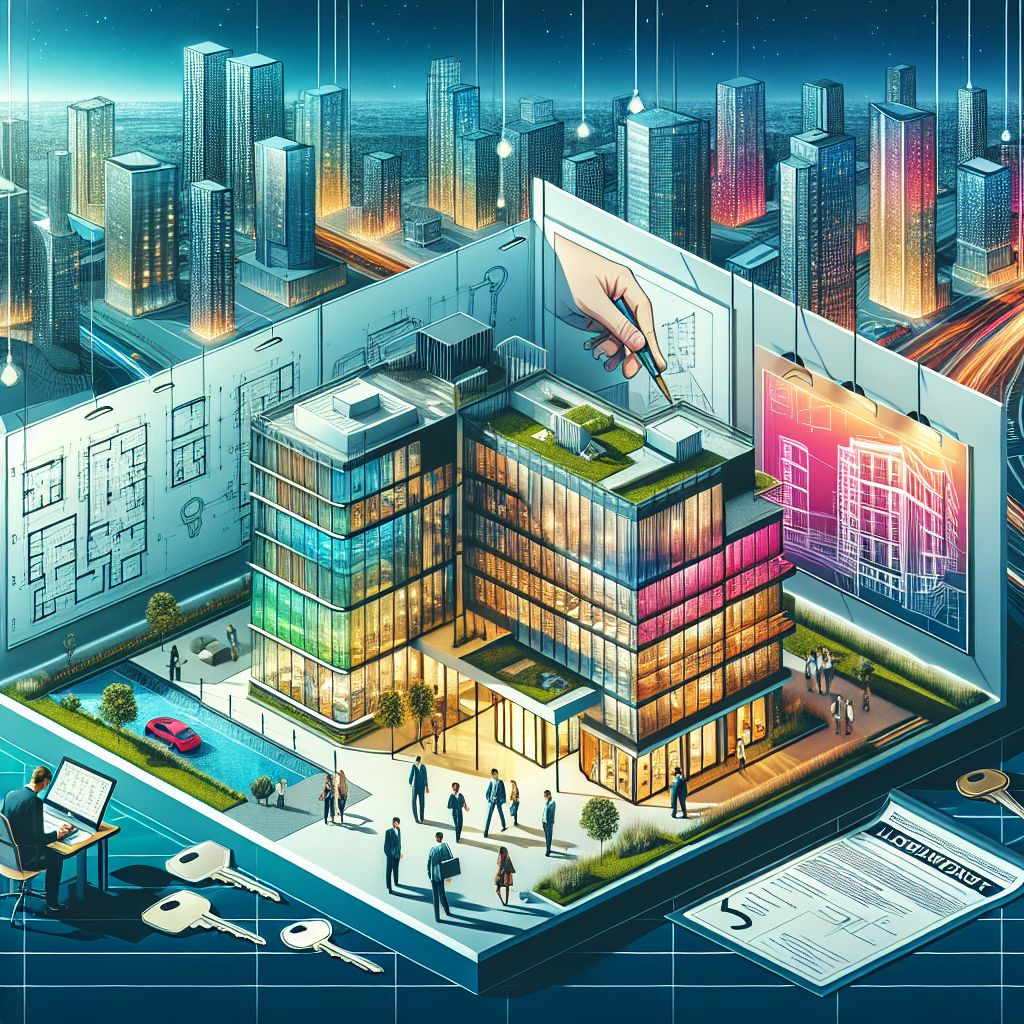Key Takeaways
- Recent U.S. Supreme Court decisions have reshaped key areas such as privacy rights and immigration policies.
- In 2023, Congress passed landmark legislation affecting healthcare and environmental regulations.
- Federal regulations have introduced stricter compliance requirements for technology companies.
- International trade agreements this year have shifted global economic dynamics, impacting tariffs and trade routes.
- Advancements in AI are revolutionizing legal practices, making processes more efficient and cost-effective.
Recent Developments in U.S. Legal Affairs
In 2023, the legal landscape in the United States has seen significant changes, with several Supreme Court decisions making headlines. These decisions not only influence the legal community but also have a profound impact on the daily lives of Americans. Let’s dive into some of these pivotal changes and understand their implications.
Supreme Court Decisions Impacting Daily Life
The Supreme Court has tackled various cases that directly affect citizens’ rights and freedoms. One major decision involved privacy rights, where the court ruled on the extent to which government agencies can access personal data without a warrant. This ruling has set new boundaries for privacy protection and digital rights.
Another significant case addressed immigration policies. The court’s decision upheld certain executive orders related to border control and asylum seekers, sparking debates about human rights and national security. This ruling has had a ripple effect on immigration processes and the lives of thousands of individuals seeking refuge in the U.S.
“The Supreme Court’s decision on privacy rights is a landmark ruling that underscores the importance of safeguarding personal data in the digital age.”
Notable Legislation Passed in Congress
This year, Congress has been active in passing legislation that addresses pressing issues such as healthcare and environmental protection. One of the most notable bills aims to expand access to affordable healthcare, ensuring that more Americans receive the medical attention they need without financial strain.
Influence of Federal Regulations on Businesses
Federal regulations have increasingly focused on technology companies, particularly concerning data privacy and cybersecurity. New compliance requirements demand that companies implement robust security measures to protect consumer information. These regulations are crucial in maintaining trust and integrity in digital transactions.
Most importantly, these regulations emphasize the accountability of tech giants in handling personal data responsibly. Companies failing to comply face substantial fines and reputational damage, which underscores the significance of adhering to these new standards.
Significant Global Legal Events
Beyond the U.S., legal events around the globe have also captured attention. International trade agreements, human rights milestones, and environmental law initiatives are reshaping global interactions and policies. Let’s explore these significant events and their global impact.
International trade agreements have been pivotal in redefining economic partnerships. Countries are renegotiating terms to adapt to the evolving economic landscape, which affects everything from tariffs to trade routes. These agreements are crucial for maintaining balanced global economic relations.
Human rights issues remain at the forefront, with countries striving to uphold and improve standards. This year has seen several milestones in human rights legislation, emphasizing the global commitment to justice and equality.
“International trade agreements in 2023 have reshaped the global economy, influencing trade dynamics and economic policies worldwide.”
International Trade Agreements
Trade agreements this year have been particularly influential. For instance, the U.S. has renegotiated trade terms with several key partners, aiming to foster economic growth and stability. These changes are expected to have long-term benefits for industries and consumers alike.
Besides that, these agreements often come with challenges, such as balancing domestic interests with international obligations. Navigating these complexities requires careful consideration and strategic planning.
Human Rights Milestones
Human rights legislation has seen significant advancements this year. Countries have introduced laws to protect marginalized communities, ensuring equal rights and opportunities for all citizens. These efforts highlight a global movement towards inclusivity and fairness.
Moreover, international organizations continue to play a vital role in monitoring and advocating for human rights, pushing for reforms and accountability where needed.
“The strides made in human rights legislation in 2023 reflect a global commitment to justice and equality, setting new benchmarks for future progress.”
Environmental Law and Global Initiatives
Environmental law has taken center stage in 2023, with global initiatives aimed at combating climate change and promoting sustainable practices. Countries worldwide are collaborating to address environmental challenges, emphasizing the urgency of collective action.
One of the most significant initiatives is the global agreement to reduce carbon emissions, which has seen widespread support from both developed and developing nations. This agreement sets ambitious targets for reducing greenhouse gas emissions, with a focus on transitioning to renewable energy sources and enhancing energy efficiency.
Furthermore, nations are investing in green technologies and sustainable infrastructure, recognizing the economic benefits of a cleaner, more sustainable future. These efforts are not only crucial for environmental preservation but also for fostering economic growth and innovation.
High-Profile Litigation Cases of 2023
This year has witnessed several high-profile litigation cases that have captivated public attention and shaped legal precedents. From major corporate disputes to famous criminal trials, these cases highlight the complexities and nuances of the legal system.
Major Corporate Disputes in Court
Corporate disputes have dominated the legal landscape, with companies battling over issues ranging from intellectual property rights to antitrust violations. One notable case involves a tech giant accused of monopolistic practices, which has sparked debates about competition and consumer rights.
In another case, a major pharmaceutical company faced litigation over alleged patent infringements, highlighting the challenges of balancing innovation with fair competition. These disputes underscore the importance of clear legal frameworks to guide corporate conduct and ensure a level playing field.
Famous Criminal Trials and Their Outcomes
Criminal trials this year have drawn significant media attention, with several high-profile cases capturing the public’s interest. One such case involved a celebrity accused of serious charges, leading to intense scrutiny and public debate.
The outcome of this trial not only affected the individuals involved but also raised questions about the justice system’s handling of high-profile cases. It highlighted the need for transparency and fairness in legal proceedings, reinforcing the importance of due process.
Landmark Intellectual Property Cases
Intellectual property (IP) law continues to be a critical area of litigation, with landmark cases setting important precedents. This year, courts have addressed issues such as copyright infringement in the digital age and the protection of trade secrets.
One significant case involved a major streaming service accused of violating copyright laws, prompting discussions about the balance between creative freedom and intellectual property rights. These cases are pivotal in shaping the future of IP law and ensuring that creators’ rights are protected in an increasingly digital world.
Besides that, these legal battles underscore the evolving nature of IP law, as new technologies and business models challenge existing legal frameworks.
Trends in the Legal Industry
The legal industry is undergoing significant transformations, driven by technological advancements and changing client expectations. These trends are reshaping how legal services are delivered, making them more accessible and efficient.
Rise of Technology in Legal Practices
Technology is revolutionizing legal practices, with law firms adopting digital tools to streamline operations and enhance client service. From e-discovery software to virtual courtrooms, technology is making legal processes more efficient and cost-effective.
Moreover, legal technology is enabling better data management and analysis, allowing lawyers to provide more informed and strategic advice. This shift towards digital solutions is not only improving productivity but also enhancing the overall client experience.
AI and Its Role in Legal Decision-Making
Artificial Intelligence (AI) is playing an increasingly important role in legal decision-making, offering new possibilities for analysis and prediction. AI tools are being used to review contracts, predict case outcomes, and even assist in legal research.
These advancements are transforming the legal landscape, providing lawyers with powerful tools to enhance their practice. However, the integration of AI also raises ethical and regulatory considerations, as the legal industry navigates the balance between innovation and responsibility.
Most importantly, the use of AI in law is reshaping the profession, requiring legal professionals to adapt and embrace new skills to remain competitive in a rapidly changing environment.
Changing Dynamics in Legal Education
The legal education landscape is evolving rapidly, with significant changes in how future lawyers are trained. Traditional methods are giving way to innovative approaches that better prepare students for the demands of modern legal practice.
One major shift is the integration of technology into the curriculum. Law schools are incorporating digital tools and platforms to enhance learning and provide students with practical skills in legal tech. This includes training in e-discovery, legal research databases, and virtual courtrooms.
Additionally, there’s a growing emphasis on experiential learning, with more law schools offering clinics and internships that provide real-world experience. These opportunities allow students to apply their knowledge in practical settings, bridging the gap between theory and practice.
“Experiential learning is transforming legal education, offering students invaluable insights into the realities of legal practice.”
Moreover, the curriculum is expanding to include interdisciplinary courses that address the intersection of law with fields like technology, business, and public policy. This holistic approach equips students with a broader understanding of the legal landscape and its impact on various sectors.
FAQs About Legal Current Events
As we navigate the complexities of legal current events, several questions arise about the impact of recent developments and future trends. Here, I address some of the most pressing inquiries.
What are the most impactful Supreme Court cases this year?
Among the most impactful Supreme Court cases this year are those related to privacy rights and immigration policies. These decisions have redefined legal standards and sparked nationwide discussions on individual freedoms and national security.
How do new international trade agreements affect global markets?
New international trade agreements have significantly influenced global markets by altering tariffs, trade routes, and economic partnerships. These changes are crucial for maintaining balanced economic relations and fostering global growth. For more insights on the impact of these agreements, you can explore latest legal news from Reuters.
Furthermore, these agreements often involve complex negotiations, balancing domestic interests with international obligations. The outcomes can have long-lasting effects on industries and consumers worldwide.
- Reduced tariffs on key goods
- Enhanced trade routes and logistics
- Increased foreign investments
What technological advances are changing the practice of law?
Technological advances are transforming the legal practice, with AI, blockchain, and digital platforms leading the charge. These innovations streamline processes, improve data management, and enhance client services, making legal practice more efficient and accessible.
How are human rights issues being addressed globally?
“Global efforts to address human rights issues are gaining momentum, with new legislation and international cooperation driving progress.”
Countries are introducing laws to protect marginalized communities and ensure equal rights, reflecting a global commitment to justice and equality. International organizations continue to advocate for reforms and accountability, pushing for higher human rights standards.
Moreover, these efforts are supported by a growing network of NGOs and activists, working tirelessly to highlight injustices and promote change. Their work is crucial in driving legislative reforms and raising awareness of human rights issues.
Overall, the global approach to human rights is becoming more collaborative and proactive, emphasizing the importance of collective action in addressing these critical issues.
What are the latest trends in legal education and career paths?
Legal education is evolving, with an increased focus on technology and practical experience. Law schools are adapting their curricula to include digital tools and interdisciplinary courses, preparing students for the demands of modern legal practice.
Career paths in law are also diversifying, with new opportunities emerging in fields like legal tech, compliance, and alternative dispute resolution. These areas offer dynamic and rewarding career prospects for law graduates.
Furthermore, there’s a growing emphasis on lifelong learning and professional development, with lawyers encouraged to continually update their skills and knowledge to stay competitive in a rapidly changing industry.






0 Comments